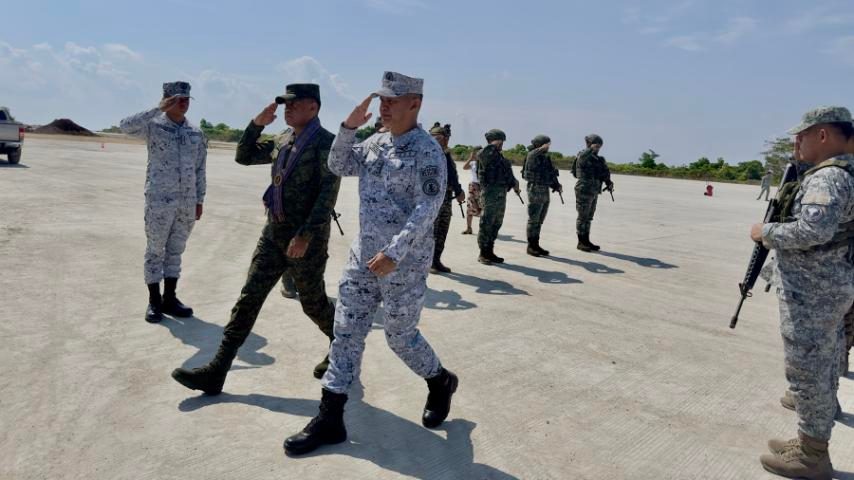SUMMARY
This is AI generated summarization, which may have errors. For context, always refer to the full article.

MANILA, Philippines – The Philippine Navy’s spokesperson for the West Philippine Sea said on Friday, May 24, there was no reason to investigate a Naval commander embroiled in controversy over a wiretapped conversation with the defense attache of Chinese embassy in Manila.

Commodore Roy Vincent Trinidad, newly-appointed Naval Inspector General and the Navy’s concurrent spokesperson for the West Philippine Sea, told reporters on the sidelines of the Navy’s 126th anniversary celebration, that there was no reason to probe sacked Western Command chief Vice Admiral Alberto Carlos over a January 2024 phone call with a certain Senior Colonel Li Jianzhong, Beijing’s defense attache in Manila.
The phone call – and the Chinese embassy in Manila’s apparent wiretapping – is the subject of a Senate inquiry. Carlos went on “personal leave” in early May 2024 and, up until the May 22 Senate hearing, had not commented on the supposed phone call with the Chinese embassy.
China, in early May, threatened to leak the call, which is claimed was proof that the Philippines agreed to its terms in order to bring down tensions in the West Philippine Sea, particularly Ayungin Shoal where a grounded World War II warship has served as an outpost since 1999. Wescom, which is based in Palawan, is responsible for a large part of the West Philippine Sea, including the marooned BRP Sierra Madre and other maritime outposts.
Beijing’s embassy in Manila eventually released a portion of the supposed transcript of the alleged conversation to two Philippine print publications and allowed reporters to listen to part of the supposed recording.
While Carlos confirmed to the Senate that Colonel Li of the Chinese embassy called him in January 2024, he did not speak in detail about their conversation. He also denied making agreements with China and confirmed that he did not know the call was being recorded.
Carlos has since been replaced by Rear Admiral Alfonso Torres, in what the Armed Forces of the Philippines (AFP) explained was an “administrative decision.”
Trinidad downplayed speculation over Carlos’ nearly month-long leave. “The AFP deemed it necessary to have a regular commander, hence Admiral Torres was designated as the regular commander of Western Command. This would also allow Admiral Carlos to be able to face all the issues the smear campaign raised against him. So he was rotated to GHQ to give him the time,” said Trinidad.
GHQ refers to General Headquarters, which means Carlos is currently a three-star military general without a position in the military. He was appointed Wescom chief in January 2022.

Asked if it was typical for a Philippine military general to have a direct line with the defense attache of China, Trinidad repeated Carlos’ sworn testimony before the Senate: “According to the Admiral in the Senate inquiry, it was his discretion. He was trying to operationalize the guidance of the Commander-in-Chief to de-escalate, to reduce tensions.”
Pressed if this was the norm for Philippine military officials to have direct lines with diplomats, Trinidad said: “Even in international practices, adversaries communicate.”
Defense and security officials have called on a probe into the actions of the Chinese embassy, with Defense Secretary Gibo Teodoro and National Security Adviser Eduardo Año floating the expulsion of Chinese diplomats for violating the Vienna Convention on Diplomatic Relations and the country’s anti-wiretapping law. – Rappler.com
Add a comment
How does this make you feel?









There are no comments yet. Add your comment to start the conversation.